We all know how beneficial worms can be for a garden. But is it effective, or practical at least, to put them in garden boxes? You're probably starting your garden box to raise vegetables. So we researched and found out if you should put worms in your garden box.
You can put worms in your garden box but only in ideal situations. It should be a large container with a good drainage system, and you'll need to know if you can keep it moist and if you know the right worm to put.
It sounds like a lot of work, and some gardeners advise against it. So, we'll discuss putting worms in garden boxes and learn some pros and cons. Read on to learn more!
Should You Put Worms In Your Garden Box?
The answer to this question highly depends on the environment the worms will live in. Here are a few points to consider:
- The garden box or container should be large enough so they can't become constrictive to worms since they like to wiggle deep into the soil.
- The garden box should have good drainage since worms prefer moist and cool soil.
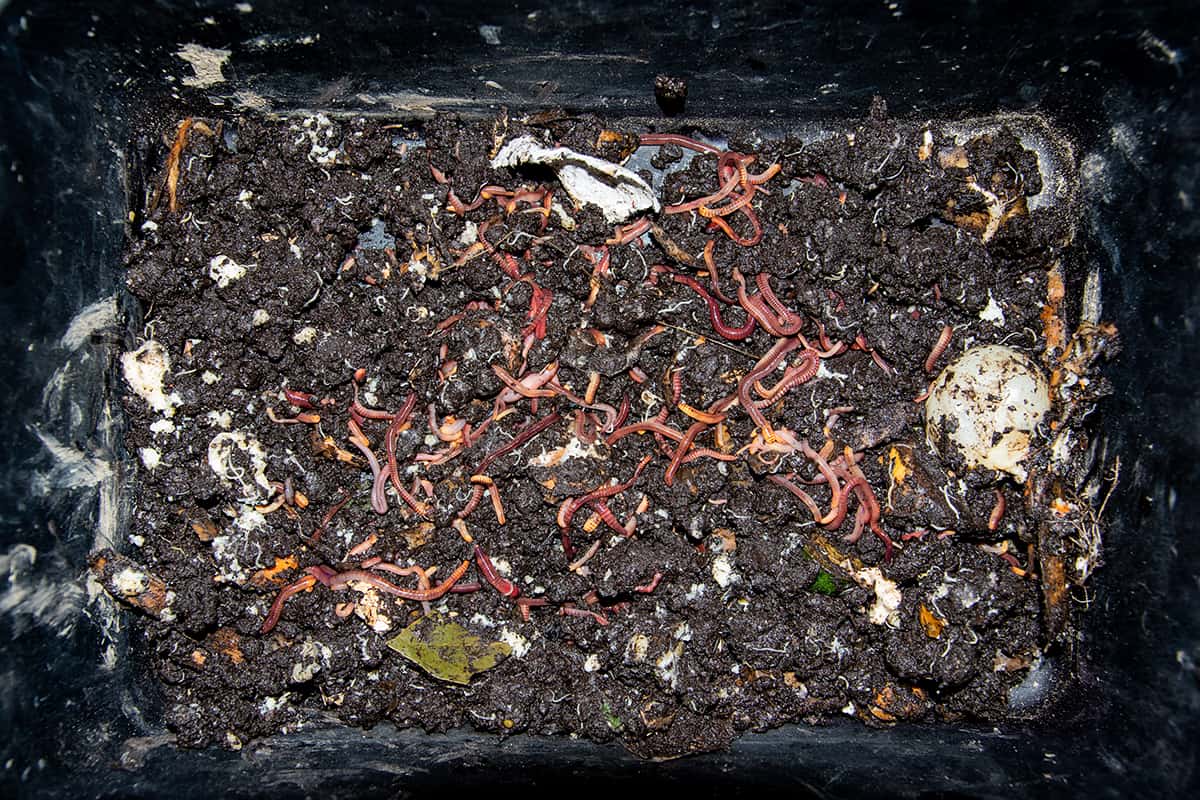
So, keeping the environment similar to an ideal is key to keeping worms. Otherwise, you should focus more on maintaining your soil without the help of worms.
Putting worms in garden boxes isn't as easy as sprinkling them and letting them do the work. You are also a part of the team, which can be tiresome.
When Should You Not Add Worms In Your Garden Box?
Do not add worms to your garden box under the following conditions:
- The garden bed is completely enclosed. Concrete beds or boxes lined with plastic or cloth aren't an ideal environment for worms to thrive in. In this case, you need to put drainage holes in the box.
- The garden bed is too small and shallow. Worms love to dig underneath the earth, which helps them to stay cool. With shallow beds and nowhere to go, it'll be hard for them to survive.
- You don't regularly water your garden bed, resulting in a dry environment. Dry earth can kill worms. You won't be able to control an extremely hot temperature. With garden boxes, they become too hot too quickly, dries out the soil, and kill the worms.
- Heavy rain or heavy watering will lead to killing the worms. This happens if your container or box isn't as big as possible. The shallowness of the box will turn into a pool of water, drowning the worms inside.
Why Do You Need To Put Worms In Your Garden Box?
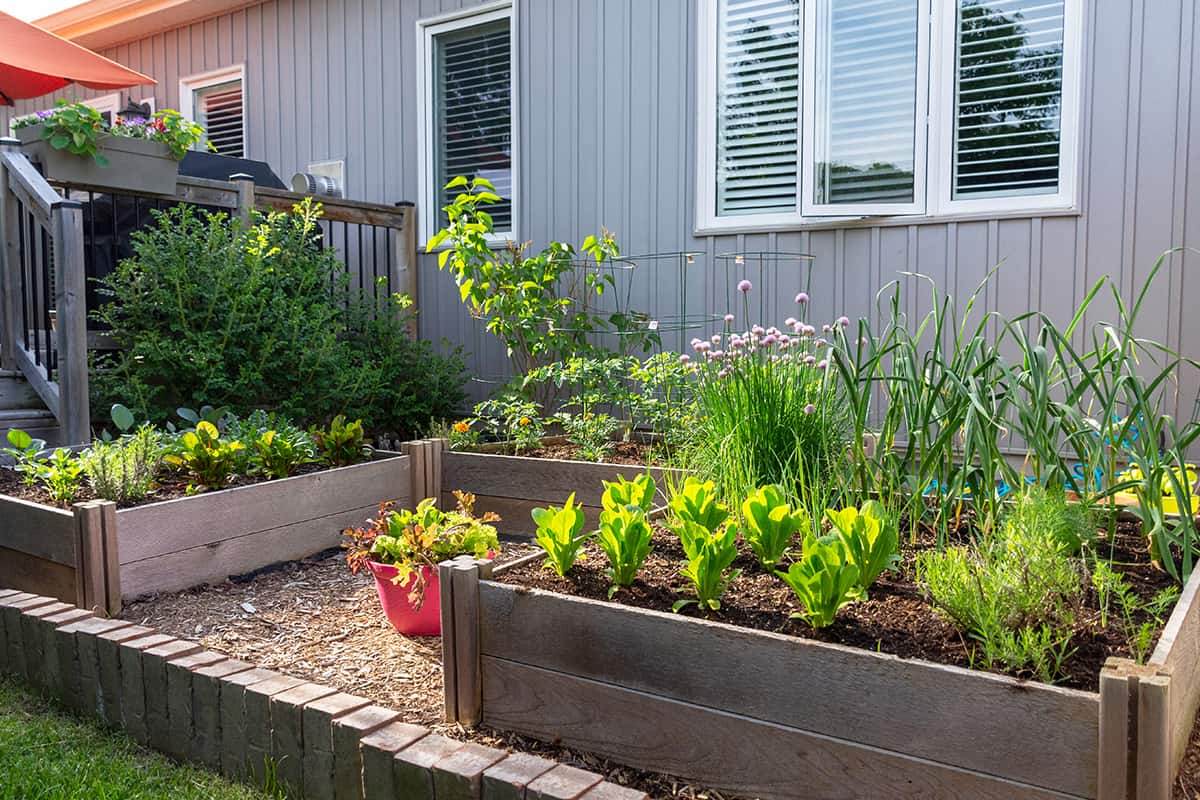
Now, if you make your garden boxes an ideal environment for worms to thrive in, that's great! Worms are very beneficial in raised garden beds, garden boxes, or containers.
If you have a large box with drainage holes and you regularly water it to maintain moisture, here's how worms can be beneficial to your garden box.
They Improve Drainage
Worms love to burrow through the soil; this burrowing creates little tunnels that increase the aeration of the soil, hence, improving drainage.
This will enrich the soil and improve the quality of plants in the garden box.
Experts say that soil with worms drains 10x faster than without. And water infiltration is up to 6 times greater than in cultivated soils.
Check out these wiggler worms on Amazon.
They Improve The Nutrients In The Soil
Worms love to break down organic matter, so giving them mulch, dead leaves, roots, and compost will help to encourage them to produce more nutrients.
These nutrients come from worm castings or secretion, which are very nutritious for your plant. While they dig tunnels, they also leave these castings in the tunnels, making each part of your garden box filled with nutrients.
According to a study, worm castings produce four times more phosphorus than surface soil.
Improving Soil Structure
Worm castings improve soil structure by acting as a glue to make aggregates which help the plants grow larger and stronger.
When you improve the soil quality for worms to thrive in, they will also improve the soil. By improving the soil structure, the soil will retain more moisture, which is a livable environment for worms and great for your plantation.
How Many Worms Should I Add To The Garden Box?
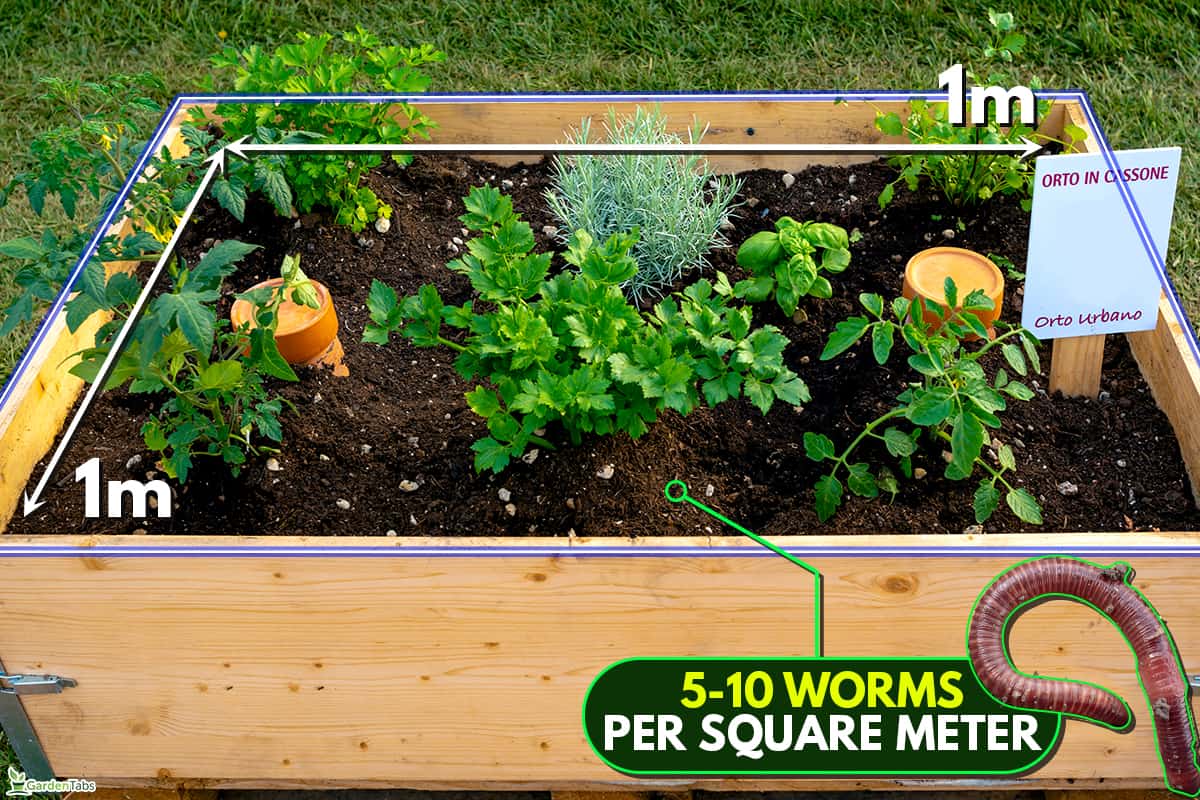
If the soil in your garden box is from your lawn, the number of worms inside it is important. Dig a few inches below the surface of your lawn and send it to a laboratory, and they'll figure out whether you have too many worms in your soil.
There is a thing such as too many worms. When the worms have secreted too much of their casting, they can burn the lawn. Too much casting means too many nutrients, causing overfertilization.
Once you receive the result of the test, you'll know whether you have a lot of worms or not.
To answer the question, you should be adding roughly 5-10 worms per square meter in your garden box.
Not All Worms Are Beneficial To Your Garden Box
A lot of worms can have many benefits for your garden, but some of them can be invasive.
There are many species of worms out there, but two of the most commonly used are red wigglers and nightcrawlers.
Red Wigglers
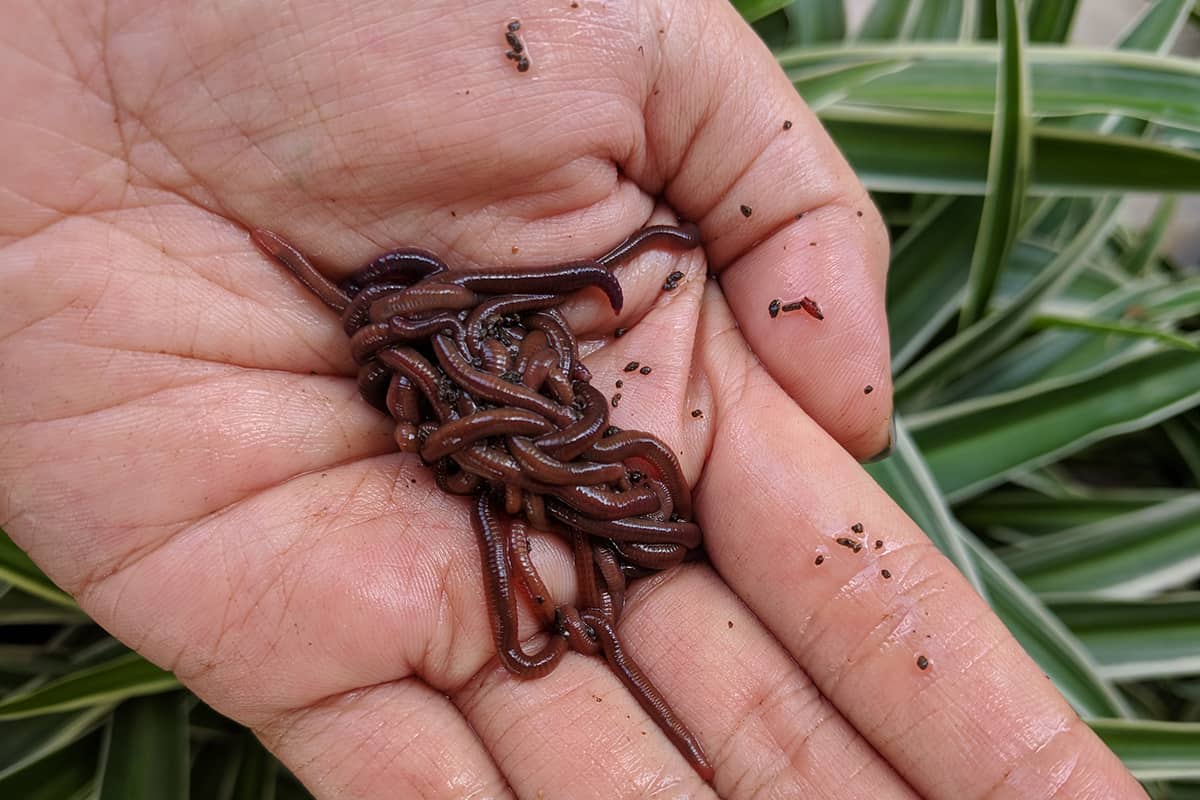
Red wigglers enjoy the surface of the soil. They do not dig in the soil too deep, which is perfect for raised garden boxes.
These worms work great as composting worms; they love digging through compost and organic matter, which is why they pair well with vermicompost.
Check out this worm casting on Amazon.
Nightcrawlers
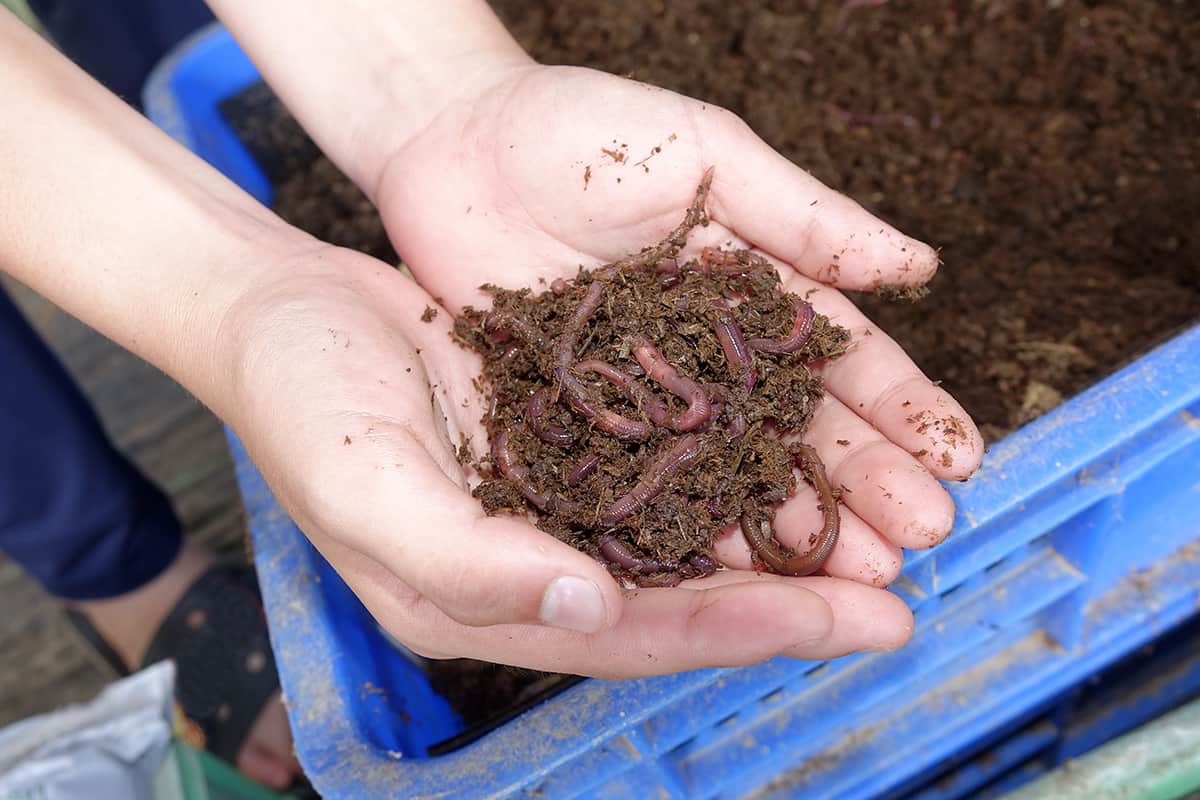
Nightcrawlers are a great substitute for red wigglers, and they are a much larger species (about 8-10 inches long).
Nightcrawlers prefer digging deeper through the soil, which is better for aeration and water infiltration.
If you have deeper beds (which is always better than having shallow ones) nightcrawlers will be perfect.
How To Compensate Without Worms
One thing to remember when putting worms in garden boxes, raised beds, or containers: the worms may escape through the holes. This is a common thing to happen since they prefer the ground below to be in garden boxes.
So, here's what you can do to work on your soil instead of using worms to do the work.
Manure
Adding manure is great to help increase soil quality in your garden box. Mix some manure with potting soil to help the buildup of microorganisms in your garden box.
Adding manure will help break down organic matter faster, which means more nutrients for your plants.
Compost
Natural compost will help increase the nutrients in the soil. You can mix compost with potting soil.
Fertilizer
Choose the right fertilizer for the plants sitting in your garden box. It's a lot easier to invest in a good fertilizer than to maintain worms in your garden box.
Get Rid Of Nuisance Worms
Not all worms are beneficial to your garden box or your lawn overall. And there are a handful of worms that can grow in your garden that can be detrimental to the growth of your plants.
Here are some examples:
Grub worms
Also known as grubs, these are the larvae of large beetles. Grubs eat the roots, leaves, and stems of almost any plant. Grubs have very slow growth, so they'll likely eat your plants for a long time.
Cutworms
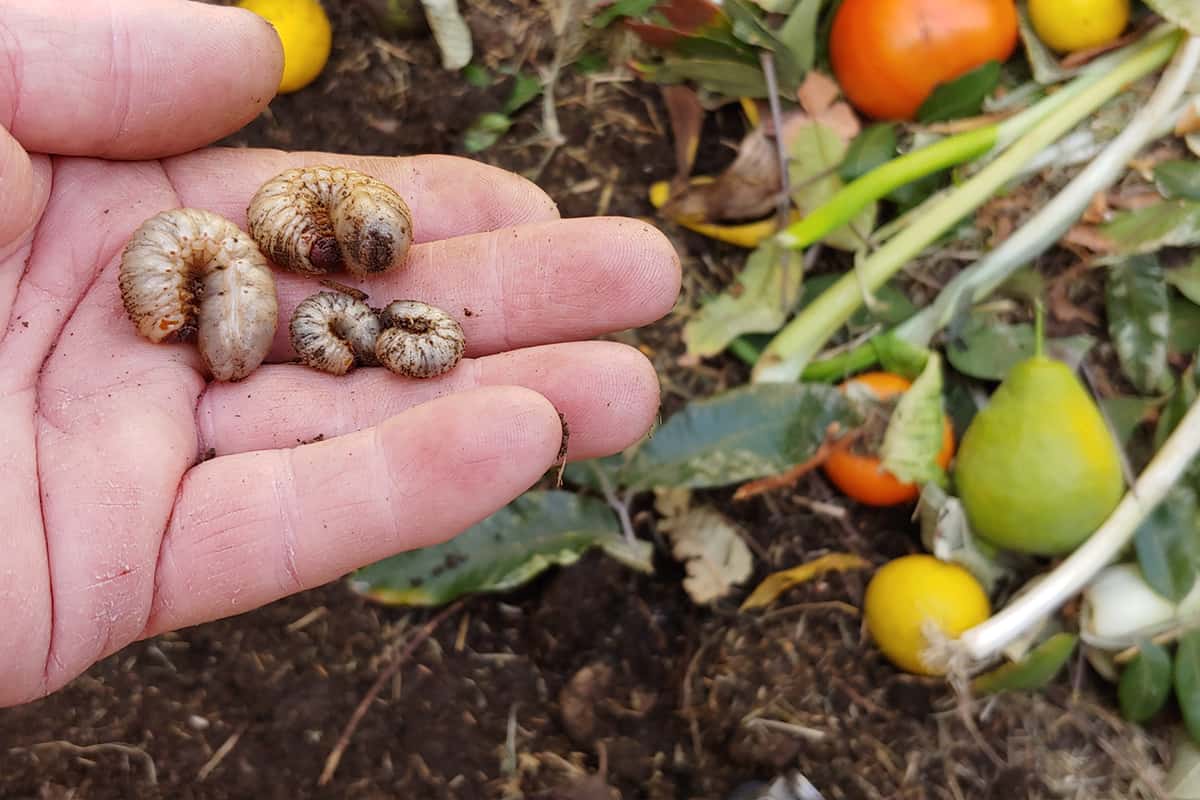
Cutworms are the larvae form of either butterflies or moths. They love munching on the roots and stems of plants. And once they grow into butterflies or moths, they'll return and lay eggs in your garden. More cutworms!
Nematodes
Some nematodes can benefit plants because they feed on organisms that would harm plants. But they also eat the plants in the process. It's a pick-your-poison thing with nematodes.
You can get rid of these worms with three kinds of methods.
- Chemicals can use insecticides to treat your plants. But this is only applicable if you're not growing edibles. Otherwise, there's no problem with using insecticides to eliminate nuisance worms.
- Biological - nuisance worms can be rid of through natural means. Such as putting ladybugs or mantes around your garden. They will gladly eat nuisance worms. This method is ideal for keeping your garden free of chemicals.
- Mechanical - you'll only need your hands for this. Observe any nuisance worms and collect them when you see them. This method is fine, but doing it mechanically wouldn't lessen the chances of getting them back again.
In Closing
Raising garden boxes can be a tricky job. There's maintenance, ensuring the plants get as many nutrients from the ground, and there are worms. You probably think that you need worms for your garden boxes. The truth is --they're optional.
It'll be a lot easier to improve the quality of the soil rather than to focus on putting worms in your garden box.
Want to read more? Check out these related posts below!
Can I Put Worms In My Compost Tumbler?
What Kind Of Plants Do Bagworms Eat? [And How To Prevent That]


